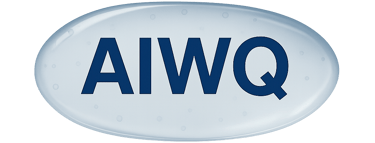Web Application
AI-based web solutions to revolutionize the way water quality is monitored and managed, ensuring a seamless automated SW platform for industry specific requirements
AIWQ

Water is an essential resource for life, industry, and the environment. However, as global populations grow and industrial activities increase, water sources are becoming more vulnerable to contamination. This highlights the critical need for effective water quality monitoring to safeguard human health, aquatic ecosystems, and sustainable water usage. In this context, the Water Quality Index (WQI) plays a pivotal role in providing an accessible and actionable measure of water quality. By integrating artificial intelligence (AI) into water quality monitoring, companies like AIWQ are pioneering the future of smart, real-time water quality management.
Water Quality Monitoring: The Core of Sustainability
Water quality monitoring involves systematically collecting data about various physical, chemical, and biological parameters of water bodies. This data helps identify potential pollutants and assess whether the water is safe for consumption, recreation, or industrial use. Traditional methods of water quality testing often involve time-consuming laboratory analysis, which can delay responses to emerging water quality issues.
With advancements in technology, AI-based water quality monitoring is becoming more prevalent, enabling real-time analysis and faster decision-making. AI-driven systems can automatically process large volumes of data from sensors and remote monitoring systems, detecting patterns and anomalies that might go unnoticed in traditional methods. This allows industries, municipalities, and environmental agencies to take timely actions to prevent contamination or mitigate damage to water bodies.
A Standard for Assessment
The Water Quality Index (WQI) is a standardized numerical scale used to summarize complex water quality data into a single, comprehensible figure. It combines multiple parameters, such as pH, turbidity, dissolved oxygen (DO), temperature, chemical oxygen demand (COD), and levels of pollutants like nitrates, heavy metals, and bacteria, to produce an overall score that reflects the quality of the water.
Revolutionizing Water Quality Monitoring
At AIWQ, we are at the forefront of integrating artificial intelligence (AI) with water quality monitoring to create smarter, more efficient systems. Our AI-powered platforms enable real-time water quality analysis, leveraging advanced sensors, IoT devices, and machine learning algorithms to assess the WQI continuously.
By collecting data from multiple sources, including water treatment plants, industrial processes, and natural water bodies, AIWQ’s systems can track real-time changes in water quality. Using predictive analytics, our AI models can forecast water quality trends, allowing industries and municipalities to take proactive steps in preventing contamination or addressing emerging issues.
For example, in agricultural settings, AIWQ can predict the impact of irrigation runoff on water bodies by analyzing variables like pesticide concentrations and nutrient loads. In the pharmaceutical industry, our AI solutions ensure that the water used in production processes remains pure, meeting stringent safety standards. Whether it's optimizing water usage for industries or safeguarding public health, our AI-driven solutions offer tailored insights and automation that significantly improve water management.
Try demo
Fill the form below to directly connect with our sales team to get the demo version fully free


